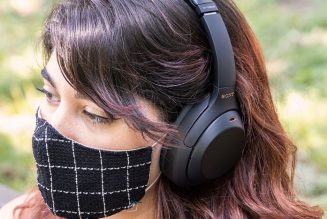
TikTok wants to be transparent. The company has announced that it’s taking new measures to give outsiders access to the algorithms it uses to sort and share users’ videos, and it will be letting experts “observe our moderation policies in real-time.”
In a blog post published Wednesday, TikTok CEO Kevin Mayer said the changes put it “a step ahead of the industry” and challenged rivals to follow suit. “[W]e believe our entire industry should be held to an exceptionally high standard,” writes Mayer. “That’s why we believe all companies should disclose their algorithms, moderation policies, and data flows to regulators. We will not wait for regulation to come, but instead TikTok has taken the first step by launching a Transparency and Accountability Center for moderation and data practices.”
The timing of the news is significant. Facebook, Google, Apple and Amazon face the House Judiciary’s antitrust panel today, and although TikTok is not among the companies facing the scrutiny of Congress, it’s certain to be mentioned during the proceedings. In past appearances, Mark Zuckerberg has pointed to TikTok as an example of competition within the social app space and use the company as a demonstration of why American tech firms need to be free to counter the rise of China.
In Zuckerberg’s prepared remarks, published yesterday, the Facebook CEO presents the competition between Facebook and its foreign rivals as an ideological battle.
“We believe in values — democracy, competition, inclusion and free expression — that the American economy was built on,” wrote Zuckerberg. “Many other tech companies share these values, but there’s no guarantee our values will win out. For example, China is building its own version of the internet focused on very different ideas, and they are exporting their vision to other countries.”
Mayer responds to these comments in his own blog post, saying he wants to focus on “fair and open competition” rather than deal with the “maligning attacks by our competitor – namely Facebook – disguised as patriotism.”
Facebook’s arguments, though, will certainly find a sympathetic ear in Congress. US politicians have been warning about the dangers of TikTok’s influence for months now, with the Trump administration going so far as to suggest a ban could be in the works.
This pressure has put TikTok in a tight spot, and it’s why the company is opening up its algorithms and moderation policies. It allows the firm to counter claims that it censors content to please the Chinese government, a favorite criticism of US politicians. It also puts the onus for transparency back on Facebook, which has received plenty of flack itself, from both the left and right, for operating its selective moderation policies.
“Without TikTok, American advertisers would again be left with few choices,” Mayer argues in his post. “Competition would dry up and so too will an outlet for America’s creative energy… We are willing to take all necessary steps to ensure the long-term availability and success of TikTok.”










